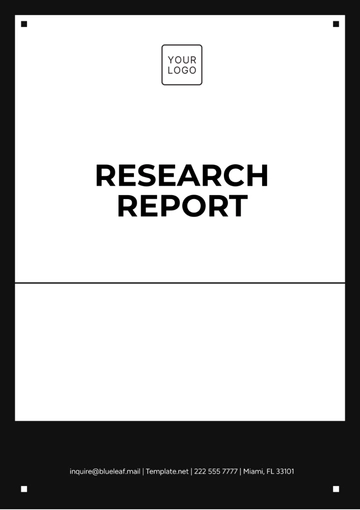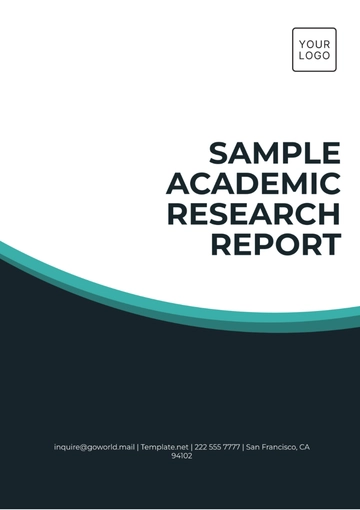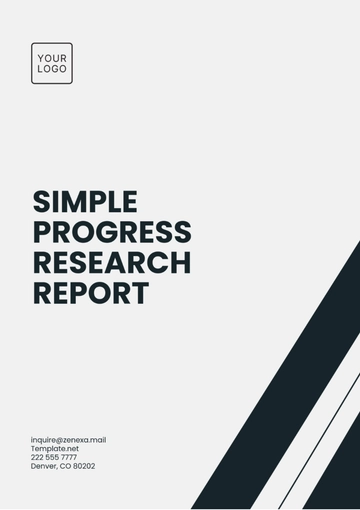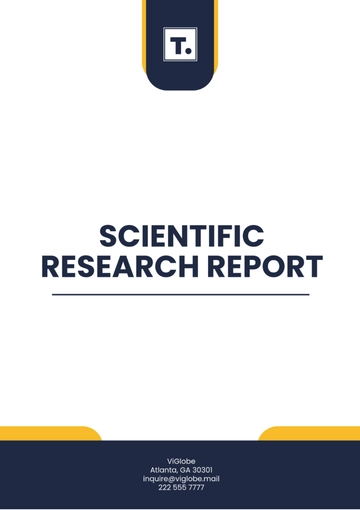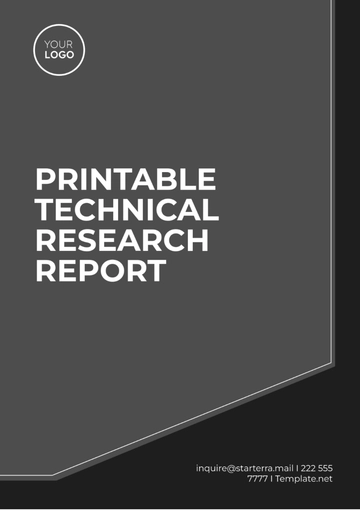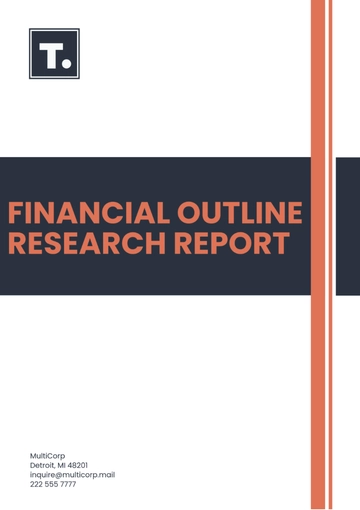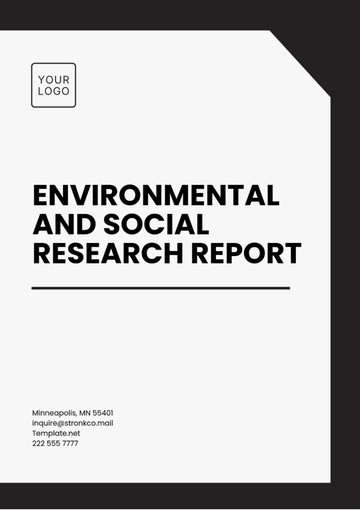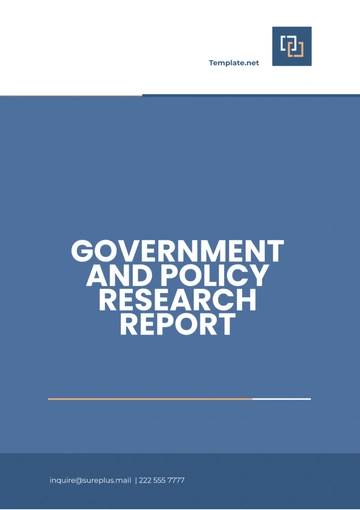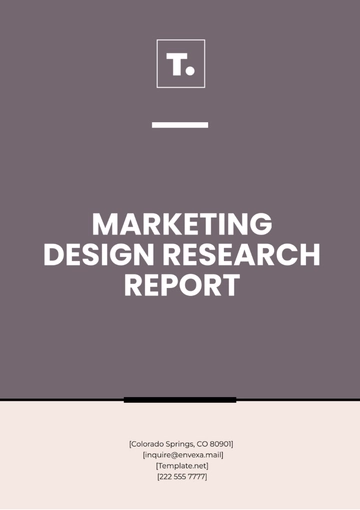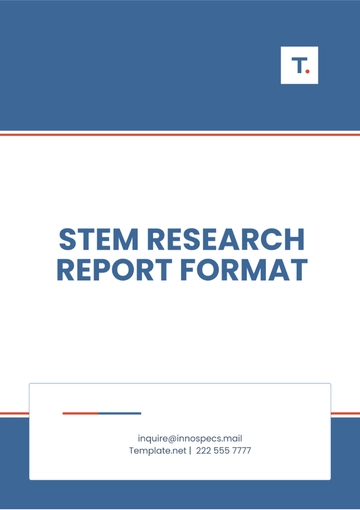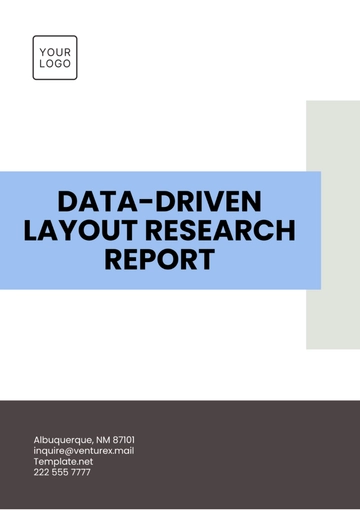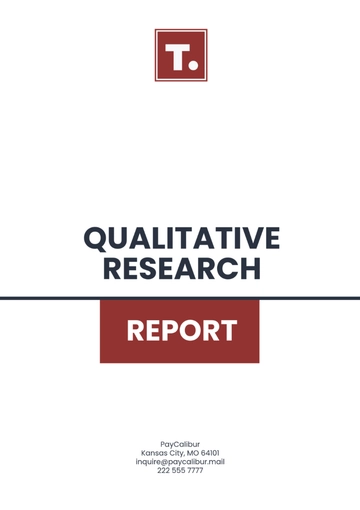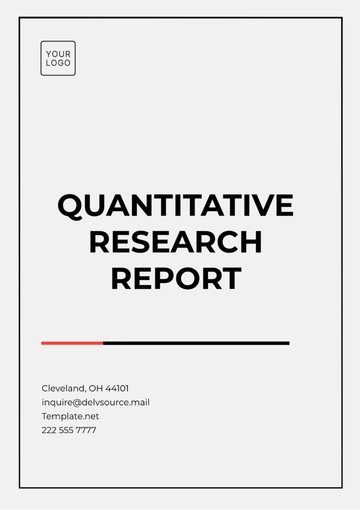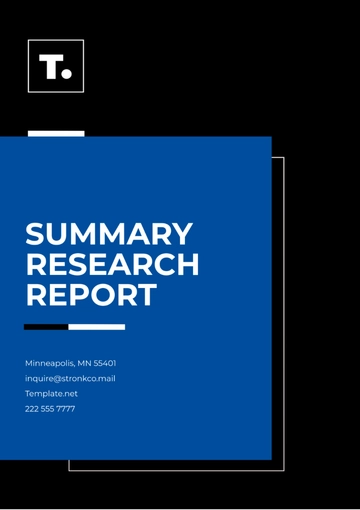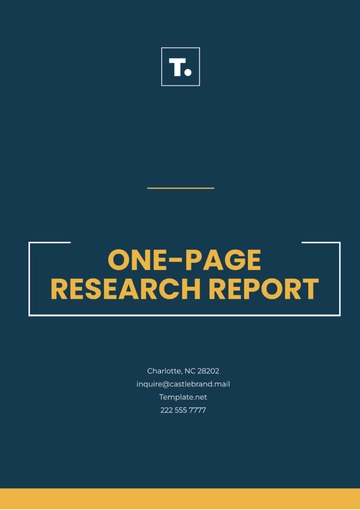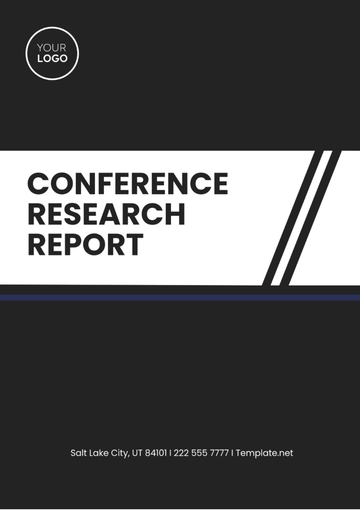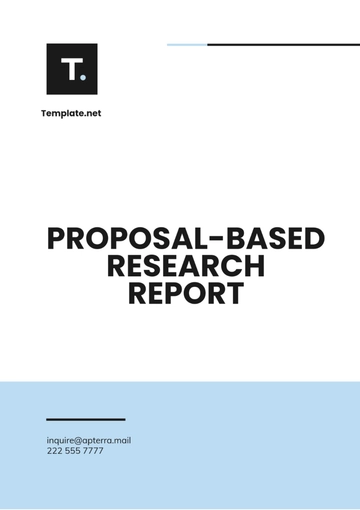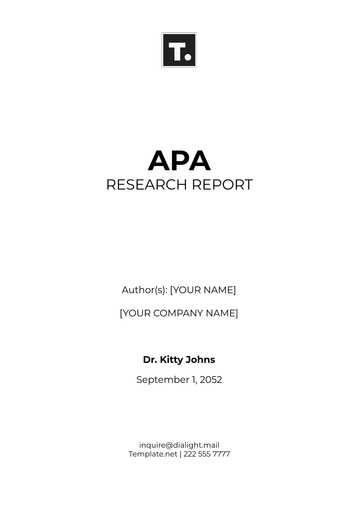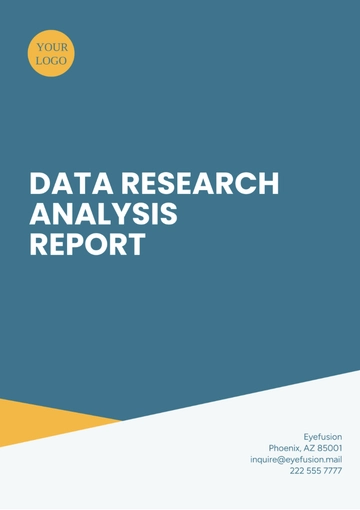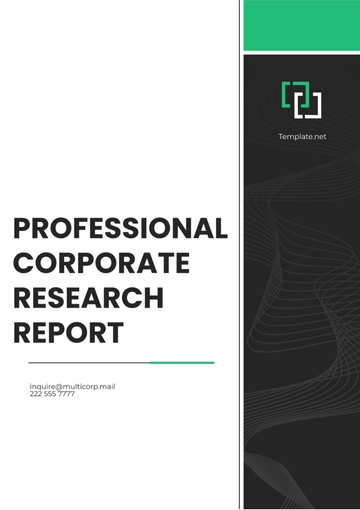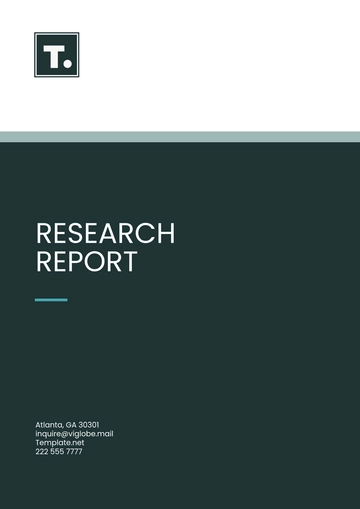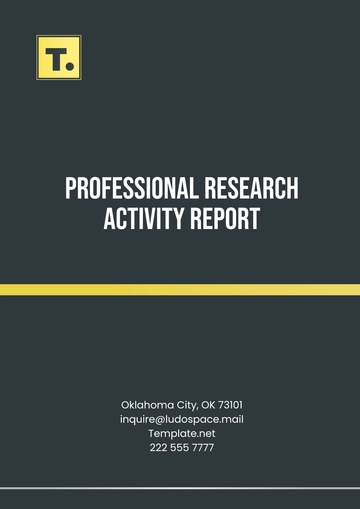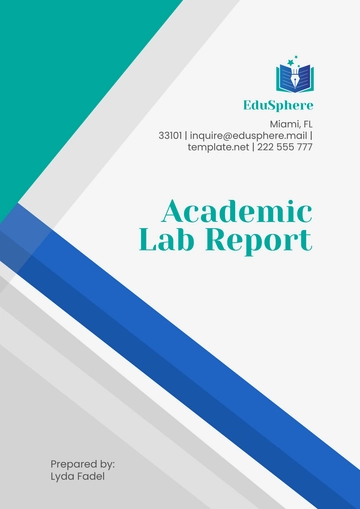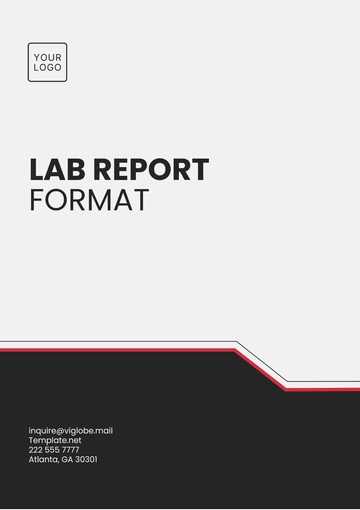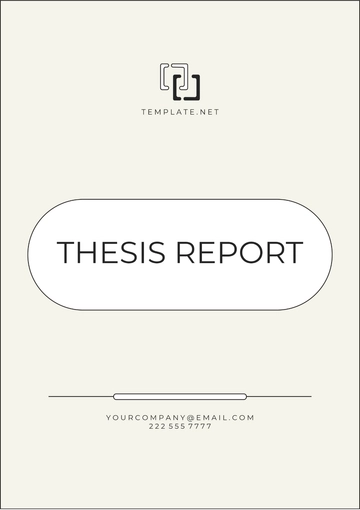Free Sample Academic Research Report
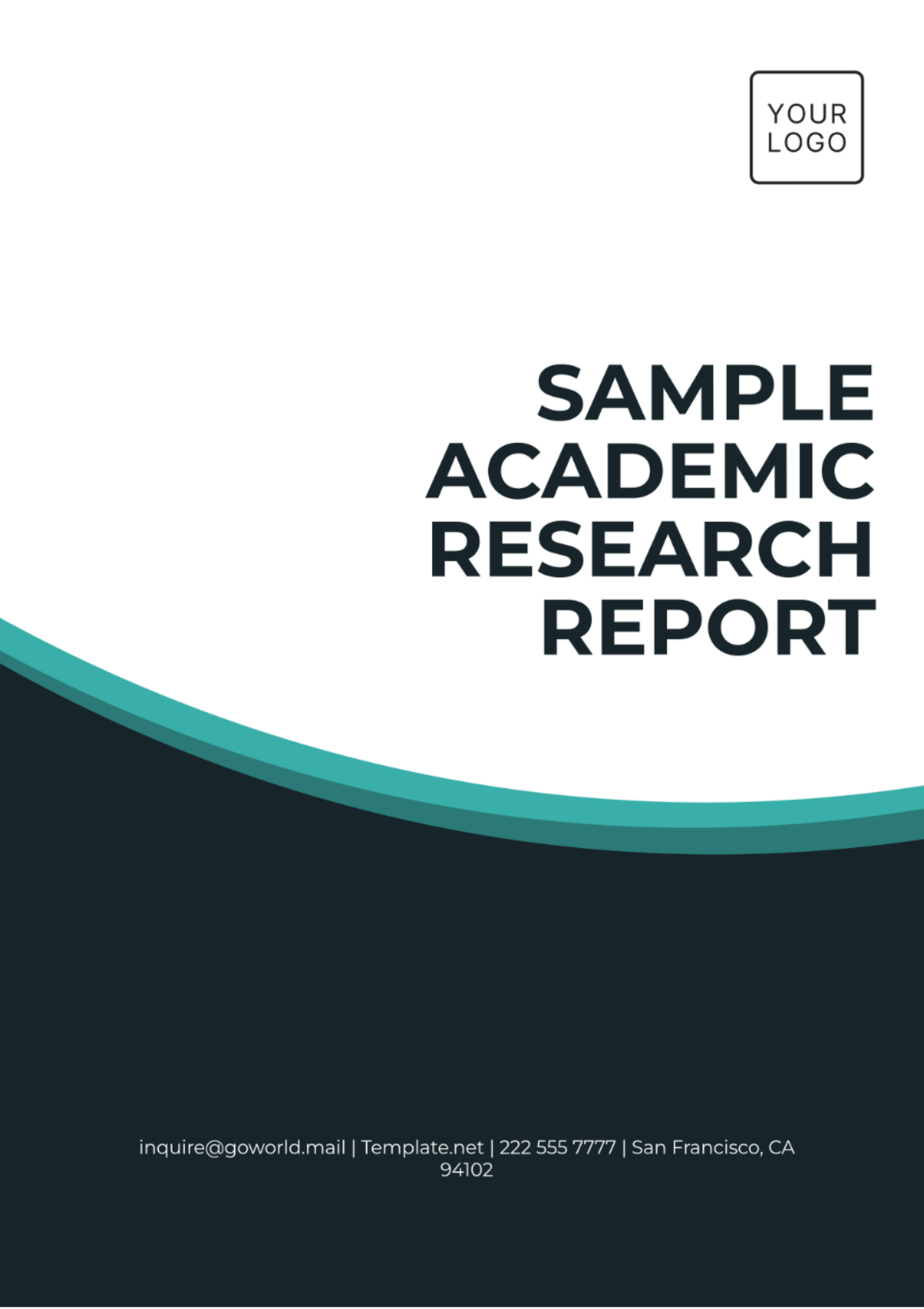
Title | The Impact of Artificial Intelligence on Academic Research Productivity |
|---|---|
Author | [Your Name] |
Date | April 15, 2060 |
I. Abstract
This report investigates the impact of artificial intelligence (AI) technologies on academic research productivity. The study analyzes data from various academic fields over the past decade, focusing on trends in publication rates, collaborative efforts, and the efficiency of research processes. Results indicate a significant increase in productivity attributed to AI tools, alongside emerging challenges related to data integrity and ethical considerations.
II. Introduction
In recent years, artificial intelligence has transformed numerous sectors, including academia. This report aims to explore how AI influences research productivity and the potential benefits and drawbacks it brings to the academic community. Understanding these dynamics is crucial for future policy-making and resource allocation in educational institutions.
III. Literature Review
Recent studies have explored the multifaceted role of artificial intelligence (AI) in academia, highlighting both benefits and challenges:
Streamlining Data Analysis: Smith (2058) emphasizes that AI enhances data analysis efficiency by automating repetitive tasks, allowing researchers to focus on interpretation and innovation.
Facilitating Interdisciplinary Collaboration: Johnson (2059) discusses how AI fosters collaboration across disciplines by providing a common platform for data sharing and analysis, enabling diverse researchers to work together effectively.
However, the ethical use of AI raises significant concerns:
Potential Biases in Algorithms: Chen et al. (2057) warn that AI algorithms can be biased, which may skew research outcomes due to the training data or algorithm design, potentially leading to inequitable results.
Need for Ethical Guidelines: The increasing reliance on AI underscores the necessity for ethical guidelines to govern its use, including protocols for transparency, accountability, and fairness to maintain academic integrity.
IV. Methodology
This study employs a mixed-methods approach, combining quantitative data analysis with qualitative interviews. A sample of 500 academic researchers was surveyed, and their publication rates from 2050 to 2060 were analyzed. Additionally, in-depth interviews were conducted with 30 researchers to gain insights into their experiences with AI tools.
V. Results
The study findings indicate a significant impact of artificial intelligence (AI) tools on academic research productivity. Key outcomes are summarized below:
Increase in Publication Rates: There was a 40% increase in publication rates among researchers utilizing AI tools compared to those who did not. This notable improvement underscores the effectiveness of AI in facilitating research output.
Time Savings in Research Tasks: Interview responses highlighted that AI-assisted tools greatly reduce the time spent on critical tasks such as data analysis and literature reviews. This efficiency allows researchers to allocate more time to the conceptual and innovative aspects of their work.
Concerns About Data Reliability: Despite the advantages, 25% of participants voiced concerns regarding the reliability of AI-generated data. These concerns relate to potential inaccuracies and biases inherent in AI systems, emphasizing the need for caution in interpreting AI-assisted findings.
VI. Discussion
The results suggest that AI can enhance research productivity by automating time-consuming tasks. However, the reliance on AI raises questions about data integrity and the need for rigorous validation processes. Researchers must balance efficiency with ethical considerations, ensuring that AI tools complement rather than replace human expertise.
VII. Conclusion
This report highlights the transformative potential of AI in academic research productivity. While the benefits are evident, it is essential for the academic community to address ethical challenges and ensure that AI is used responsibly. Future research should focus on developing guidelines for the ethical use of AI in academic settings.
VIII. References
Chen, L., Smith, A., & Johnson, R. (2057). Ethical Implications of AI in Academic Research. Journal of Educational Ethics, 12(3), 45-67.
Johnson, R. (2059). AI and Interdisciplinary Collaboration: A New Paradigm. International Review of Education, 88(2), 100-115.
Smith, J. (2058). The Role of AI in Enhancing Research Efficiency. Research Management Journal, 54(1), 22-36.
- 100% Customizable, free editor
- Access 1 Million+ Templates, photo’s & graphics
- Download or share as a template
- Click and replace photos, graphics, text, backgrounds
- Resize, crop, AI write & more
- Access advanced editor
Discover the perfect structure for your academic research with this editable Sample Academic Research Report Template from Template.net. Ideal for students, scholars, and professionals, this customizable template is designed to suit various academic disciplines. Easily edit and tailor each section to your needs using our Ai Editor Tool, ensuring comprehensive and professionally formatted research documentation.
You may also like
- Sales Report
- Daily Report
- Project Report
- Business Report
- Weekly Report
- Incident Report
- Annual Report
- Report Layout
- Report Design
- Progress Report
- Marketing Report
- Company Report
- Monthly Report
- Audit Report
- Status Report
- School Report
- Reports Hr
- Management Report
- Project Status Report
- Handover Report
- Health And Safety Report
- Restaurant Report
- Construction Report
- Research Report
- Evaluation Report
- Investigation Report
- Employee Report
- Advertising Report
- Weekly Status Report
- Project Management Report
- Finance Report
- Service Report
- Technical Report
- Meeting Report
- Quarterly Report
- Inspection Report
- Medical Report
- Test Report
- Summary Report
- Inventory Report
- Valuation Report
- Operations Report
- Payroll Report
- Training Report
- Job Report
- Case Report
- Performance Report
- Board Report
- Internal Audit Report
- Student Report
- Monthly Management Report
- Small Business Report
- Accident Report
- Call Center Report
- Activity Report
- IT and Software Report
- Internship Report
- Visit Report
- Product Report
- Book Report
- Property Report
- Recruitment Report
- University Report
- Event Report
- SEO Report
- Conference Report
- Narrative Report
- Nursing Home Report
- Preschool Report
- Call Report
- Customer Report
- Employee Incident Report
- Accomplishment Report
- Social Media Report
- Work From Home Report
- Security Report
- Damage Report
- Quality Report
- Internal Report
- Nurse Report
- Real Estate Report
- Hotel Report
- Equipment Report
- Credit Report
- Field Report
- Non Profit Report
- Maintenance Report
- News Report
- Survey Report
- Executive Report
- Law Firm Report
- Advertising Agency Report
- Interior Design Report
- Travel Agency Report
- Stock Report
- Salon Report
- Bug Report
- Workplace Report
- Action Report
- Investor Report
- Cleaning Services Report
- Consulting Report
- Freelancer Report
- Site Visit Report
- Trip Report
- Classroom Observation Report
- Vehicle Report
- Final Report
- Software Report
